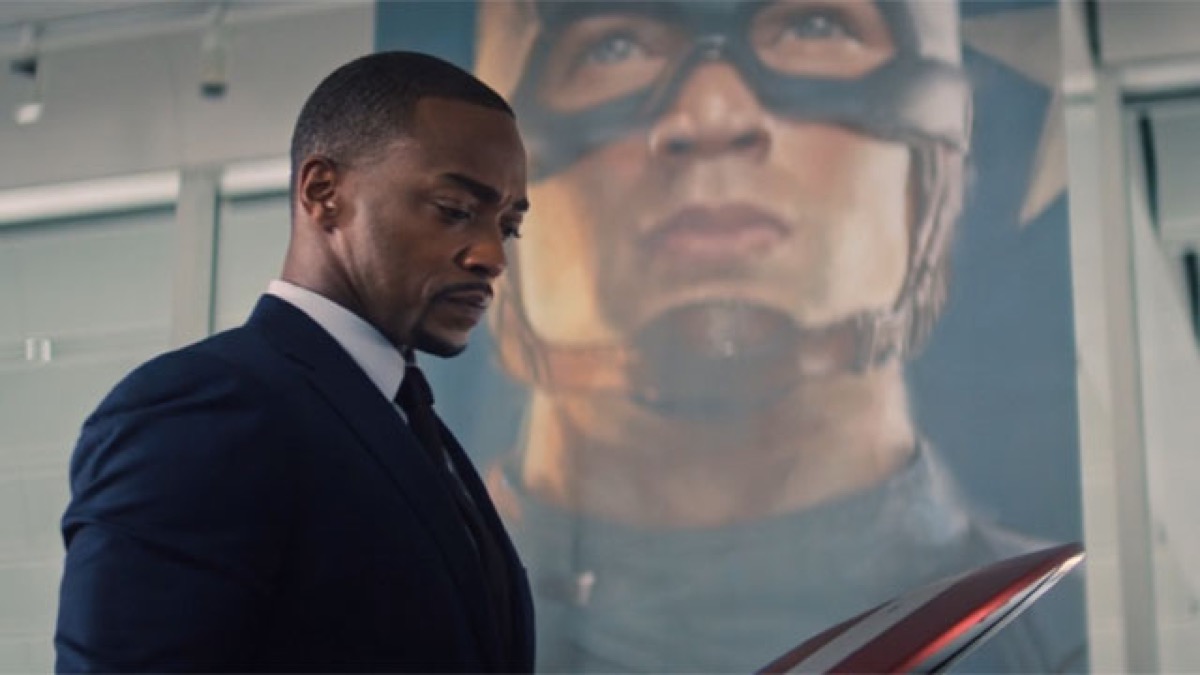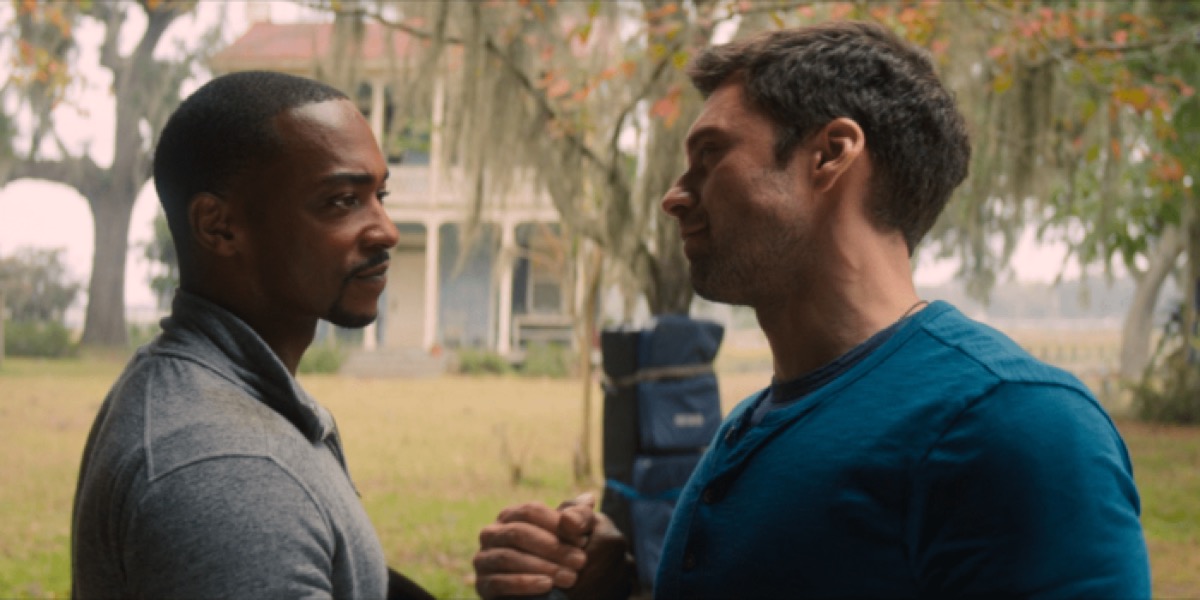The Falcon and the Winter Soldier Needed to Stop Deifying Steve Rogers


**Spoilers for Marvel and Disney+’s The Falcon and the Winter Soldier thus far!**
In a lot of cases, when someone dies, many people will immediately act as if they were a saint upon the Earth, truly too good for this sinful world, and had never done anything wrong in their life ever. It’s a natural reaction, of course, to grief. You don’t want to remember the bad times, so the person that’s gone takes on a better image than perhaps what they had. The Falcon and the Winter Soldier does this with Steve Rogers.
Steve Rogers’ presence looms over The Falcon and the Winter Soldier like a ghost, a different form of grief shown than what we saw in WandaVision. Sam Wilson and Bucky Barnes are the two people that, arguably, knew Steve Rogers best. They are the ones who are struggling with his legacy while also, simultaneously, deifying him. Bucky, in part, wraps his identity within Steve’s judgement because Steve believed in him as a person. So, what does that mean now that Steve is gone?
Sam, meanwhile, struggles with the legacy of Captain America in terms of racial identity. He also, however, cannot reconcile the shoes that Steve left behind to fill—mainly because, to Sam, they feel too big to fill in that moment. Throughout the first four episodes of The Falcon and the Winter Soldier, Steve Rogers is largely deified by those around him. He is held up as the standard for which everyone is measured against, yet fails.
The only real instance in the first four episodes of someone remembering Steve’s faults as a person comes down to Sharon Carter, who shares a bitterness that, while she helped Steve in Captain America: Civil War, she was left adrift to her own devices, unable to return home. Even then, it’s glanced over, noted, and back in episode four, Steve is remembered as the quintessential good man, above reproach by those around him.
That’s the frustrating thing in The Falcon and the Winter Soldier that comes from both Sam and Bucky with their relationship to Steve. Both are mourning the loss of someone that was central to their lives. Both are respecting his choice to stay in the past and live a life with Peggy Carter at the end of Avengers: Endgame. But, however, both need to be allowed to be angry at that choice, as well. In fact, both should be angry at it—because, to them, they blinked their eyes and their best friend decided to leave them.
Instead, in their grief, Sam and Bucky put Steve on a pedestal. Largely, so does the world around them, as well—even Zemo, who hates super soldiers and superheroes, agrees that there will never be another Steve Rogers in the world. It’s through this deification of Sainted Steve Rogers that, well, we don’t see Sam and Bucky maybe deal with their feelings about Steve, his choices, and how it affected them in the long term.
Then, however, things take a turn in episode five, “Truth.” Watching that episode, it feels like, maybe, there will be a chance to bring Steve down to a level of a man, at least for those who loved him. The moment that it really snaps into focus is when Bucky says to Sam, “When Steve told me what he was planning, I don’t think either of us really understood … what it felt like for a Black man to be handed the shield. How could we? I owe you an apology. I’m sorry.”

It’s one of the closest moments we get from Sam and Bucky about Steve being a man with flaws, who didn’t think things through and left Sam in particular in a very difficult position. Sam has a similar moment where he tells Bucky that he shouldn’t have his identity tied up in what others (namely Steve) think of him. Both of these instances are important in showcasing that both Sam and Bucky are moving on from Steve, maybe even seeing him as a man again.
The issue with the early episodes of The Falcon and the Winter Soldier is that both title characters are, in their own ways, feeling adrift and abandoned by someone who was important to them. Whether or not Steve is actually dead here is irrelevant (because no one gets too clear, and he looked fine in Avengers: Endgame). The characters are still grieving. More importantly, they need to express those feelings.
Thinking about your own feelings, admitting that you are angry with someone for leaving, especially at the precarious emotional point that Avengers: Endgame left many of its characters, is not a bad thing to explore. It’s frustrating not to see that emotional beat more deeply poked at for Sam and Bucky in The Falcon and the Winter Soldier because the series is not afraid to go into some very hard and real issues.
With one episode left in The Falcon and the Winter Soldier, we’ll see Sam ascend into his new role as Captain America, making the moniker his own. One thing that will be great to see, as well, is if the people that Steve left behind admit that, yeah, they’re angry at him for leaving—that he’s not an impossible to touch deity, looking down on the Earth from the Moon. He was a man, and he left them.
Steve passed a legacy onto Sam that he wasn’t ready to bear without thinking of the implications. He left Bucky to deal with his trauma alone. He left them. And it just feels like something’s missing in those left behind not having a direct reaction to that leaving.
(images: Marvel Entertainment)
Want more stories like this? Become a subscriber and support the site!
—The Mary Sue has a strict comment policy that forbids, but is not limited to, personal insults toward anyone, hate speech, and trolling.—
Have a tip we should know? [email protected]
